Land and Will: how Anarcho-socialism worked in the States of the 19th century
Categories: History | Society | World
By Pictolic https://pictolic.com/article/land-and-will-how-anarcho-socialism-worked-in-the-states-of-the-19th-century.htmlAmericans are very offended when they are told that socialism was invented in Europe. In fact, the first half of the XIX century was spent in the United States under the sign of many socialist ideas and practices. True, it was agrarian anarcho-socialism. It was based on the very principles of the creation of the United States – autonomy and assistance to the poor with "assets", land, which was then in abundance in America.
Also at the heart of these ideas was the struggle against cities, monopolies and banks. It was the cities and its main elements that took this " old " socialism out of the mainstream. But during the Great Depression, these ideas were revived.
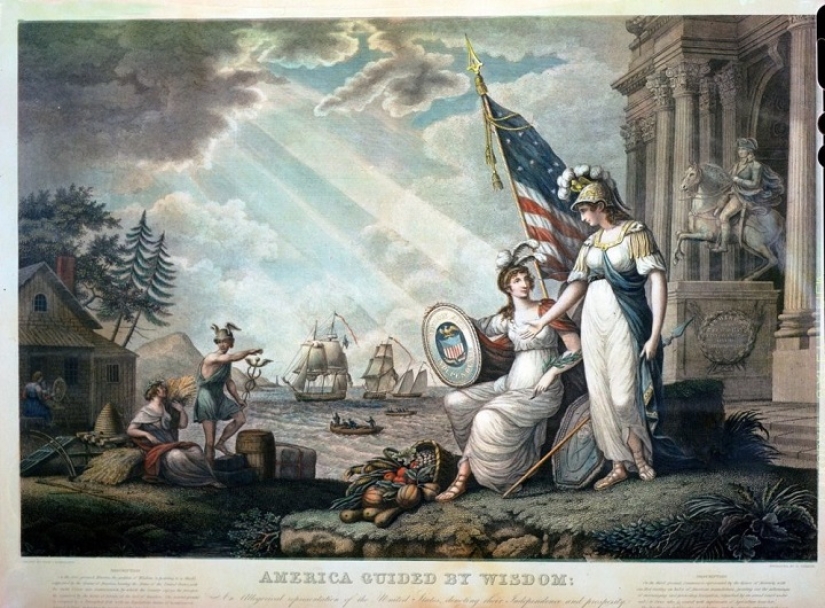
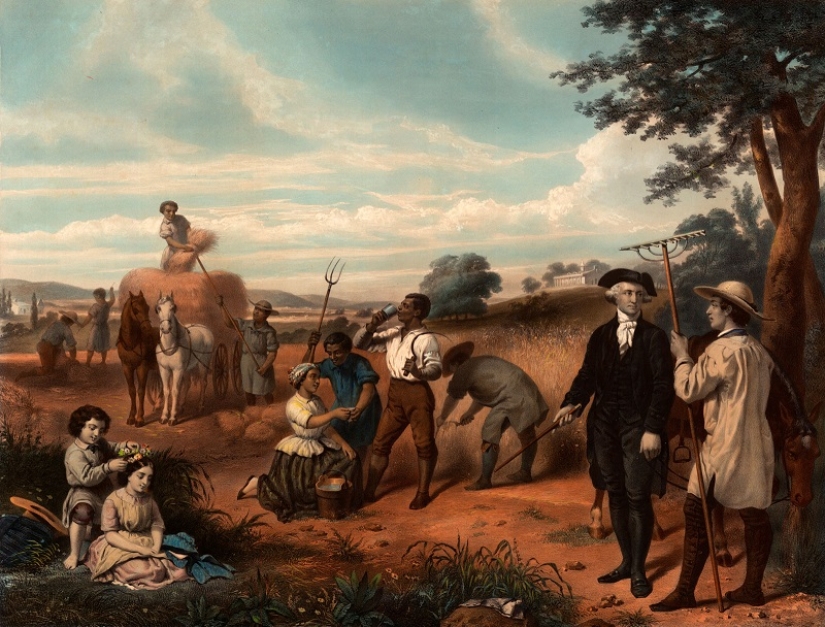
Americans are very offended when they are told that socialism was invented in Europe. In fact, the first half of the XIX century was spent in the United States under the sign of many socialist ideas and practices. True, it was agrarian anarcho-socialism. It was based on the very principles of the creation of the United States – autonomy and assistance to the poor with "assets", land, which was then in abundance in America.
Also at the heart of these ideas was the struggle against cities, monopolies and banks. It was the cities and its main elements that took this " old " socialism out of the mainstream. But during the Great Depression, these ideas were revived. The current shift in the US economic course may seem to many to be the first sign of a departure from canonical right-wing and liberal ideas.
However, America has a rich tradition of ideas of radical redistribution of wealth and the introduction of a basic income. One of the brightest representatives of this tradition is Hugh Long, a senator and "dictator of Louisiana", as his contemporaries called him, a contender for the US presidency in the 1936 campaign," the idol of shopkeepers, small entrepreneurs and middle‑class white farmers, " as the American press wrote about him in the early 1930s.
But Long's ideas were also based on the rich tradition of American anarcho-socialism. American writer Upton Sinclair wrote in the 1930s:
"Even among our individualist pioneers, there were Americans who dreamed of a society built on justice. We had – almost a hundred years ago – Brook Farm and many other colonies. We had our own socialist movement led by such leaders as Albert Brisbane, Horace Greeley, Wendell Phillips, Francis Willard, Edward Bellamy and, finally, Eugene Debs and Jack London.
Many Americans looked at socialism not as a theoretical and practical negation of capitalism, but as one of the ways - and moreover quite legitimate-to implement the ideas and promises of the American revolution and correct those deviations from the predetermined path that were allowed by negligent politicians and greedy entrepreneurs."
Socialism was thus interpreted as corresponding to the very spirit of the ideas of the " founding fathers "and consistent with the Declaration of Independence, the Constitution and the Bill of Rights, and therefore compatible with the"idea of America" itself.
After independence, the founding fathers of the United States, Franklin and Jefferson, painted the future of the country as an agrarian civilization. In their opinion, only a person who works on his own land can be free. Whereas factories and trade are " carriers of vices and tools that serve to destroy the freedom of the individual and the state."
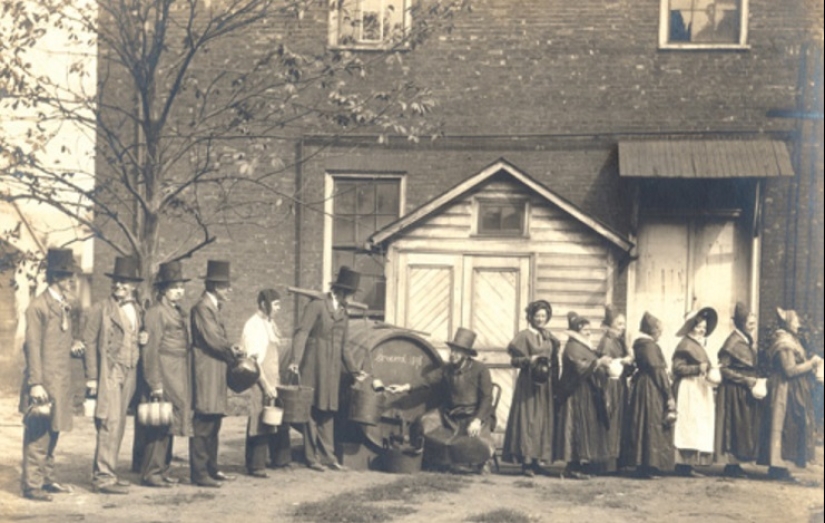
The socialist utopia, like its creators themselves, who visited the United States, met at first not just a warm welcome from the Americans, but also a direct interest from official America. Suffice it to say that Robert Owen twice spoke in the American Congress and received an audience with such prominent American political figures as Jefferson, Madison, John Adams, Jackson, Monroe.
American anarcho-socialism combined the ideal of economic individualism with the ideal inherent in all socialist utopias and, in general, also traditionally attractive to a significant part of Americans of the XIX century, the essence of which is most accurately expressed by the concept of "community" – let's call it "fraternal unity", "community of free people" or "free community of equal citizens".
It was the ideal of the community (which also inspired the creators of various kinds of communities), and not the ideal of socialized production and "equality of property" that attracted Americans to socialism in the 1820s and 40s. As for the relations regarding property, the majority of adherents of socialism in the United States preferred not socialization, but an even distribution of property.
This is the way we find the question, for example, in Thomas Skidmore, one of the most prominent American socialists of the first half of the XIX century. The very name – sounding like a manifesto – of the book he published in 1829 is characteristic:
Skidmore, in particular, proposed that every man who has reached the age of 21 and every unmarried woman should be given free ownership of 160 acres of land (approximately 65 hectares), provided that ownership of this land is maintained as long as the owner of the land cultivates it himself (and then one of the children). The right to sell and lease land was to be abolished forever.
A "Relief fund"was also formed from indirect taxes. It was assumed that until the new farm gets back on its feet, as well as in the event of force majeure (death of a husband or wife, drought, tornadoes, etc.natural disasters), $ 6 per month was allocated free of charge for each adult, and $ 2 for each child.
Thus, a typical family with three children and a husband and wife could count on a temporary welfare of $ 18 per month. Since the 1820s, the dollar has depreciated 60-80 times, i.e. for our money it is 1,100-1,400 dollars a month for such a family.
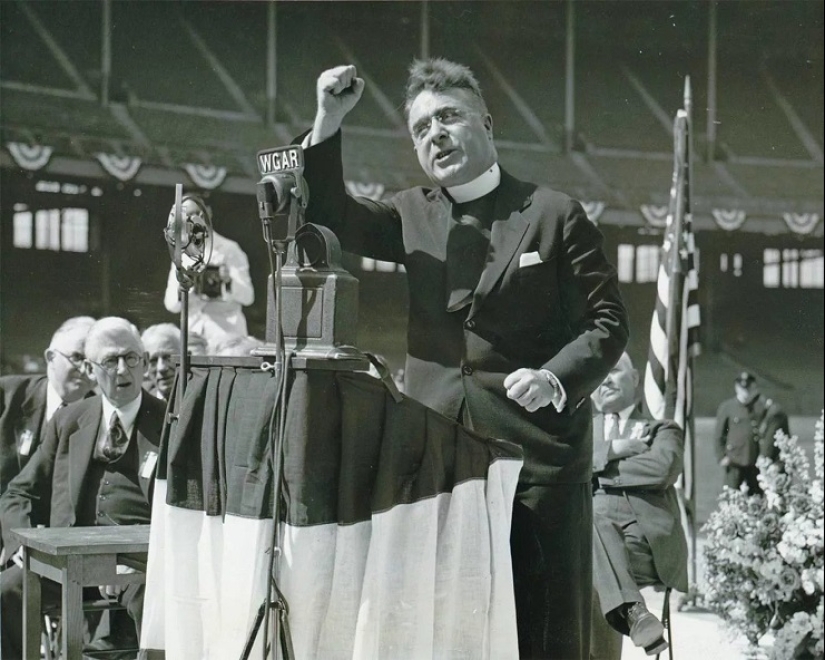
The erosion of socialist-agrarian ideas occurred with the growth of cities and industrialization. The corruption of American, Protestant anarcho-socialism, as its representatives later believed, also occurred due to the mass arrival of Catholics (Irish, Italians, some Germans, Poles, etc.) and especially Jews – who brought Marxism and other radical "urban" types of socialism.
Nevertheless, in the 1930s, during the Great Depression, there was a rebirth of these ideas. We have already mentioned Senator Hugh Long. One more prominent representative of their ideas was Charles Coughlin — an American religious figure, a popular radio preacher in the 1930s.
Interestingly, he was just a Catholic (coming from an Irish family) and sympathized with the left flank of Italian fascism. His views were just radical, but he, as an intelligent preacher, understood that it was necessary to reach the hearts of white Protestants by applying their old anarcho-socialist ideas.
An interesting Soviet book by Batalov "Social Utopia and Utopian Consciousness in the USA" (1982) this is how Coughlin describes his ideas:
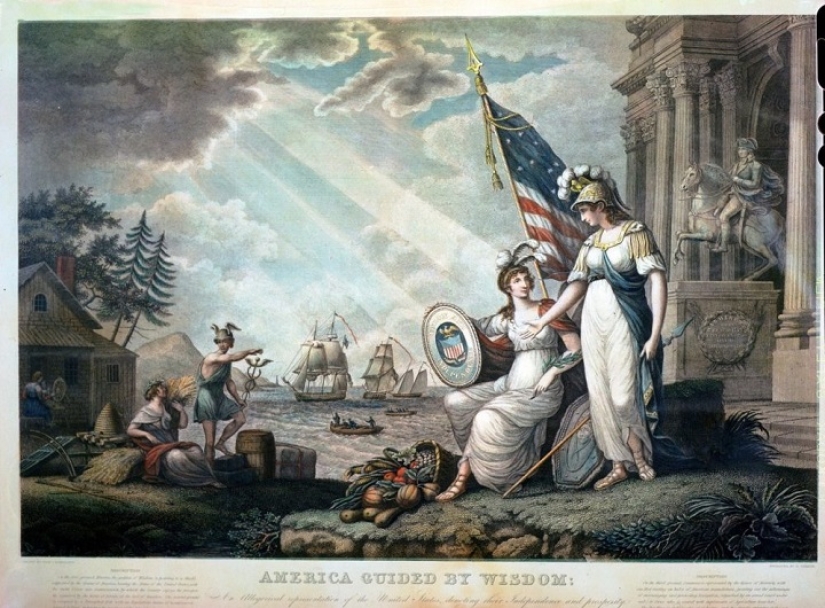
Coughlin also proposed to introduce a progressive income tax, to nationalize banks (F. F.'s refusal).Roosevelt's decision to follow this path led to Coughlin's break with the president, whom he had previously actively supported), to sharply reduce the bureaucratic apparatus.
The plans of Long, Coughlin and a number of other reformers of the 1930s testified that the utopia of farm America as a type of mass democratic utopia, which it was for almost the entire XIX century, had outlived itself.
The ideals that were laid in its foundation – equal opportunities, entrepreneurial individualism, small private property, local self – government, the "minimal state"-still retained their appeal to a significant part of Americans.
However, in the new historical conditions, these ideals, while retaining their critical function, have lost their former progressive role-both in their traditional combination and in combination with other ideals that were initially alien to them, such as a "strong state" or "strong power".
But now the growth of socialist ideas in the United States (according to opinion polls, more than 50% of young people already sympathize with them) is based on the synthesis of anarcho-socialism in the early United States and the "strong left state" – this idea is borrowed from Europe. If a left-wing politician appears in the United States who has managed to combine these two ideas, he may well be waiting for a rapid rise.
And many of the ideas of American anarcho-socialism may well be transferred to Russia, first of all to huge devastated spaces outside the attraction of large agglomerations.
Keywords: USA | History | World | Society | Socialism | Ideas | XIX century
Post News ArticleRecent articles

American artist Lee Price is sure that eating is a completely natural process, but many are ashamed of their attitude to food, ...

Our beautiful and diverse world will surprise even the most inveterate skeptic! We publish a selection of irrefutable photoproofs ...
Related articles

Our beautiful and diverse world will surprise even the most inveterate skeptic! We publish a selection of irrefutable photoproofs ...

The world community was shocked when in 2007 a dirty naked woman was found in the Cambodian jungle, who did not speak, could not ...

Can you tell what snakes, ninja shurikens, eels and grenades have in common? It's simple — all this is periodically seized ...

Photographer Brigitte Niedermair works with world-famous glossy magazines and fashion houses. Her regular clients include Dior, ...